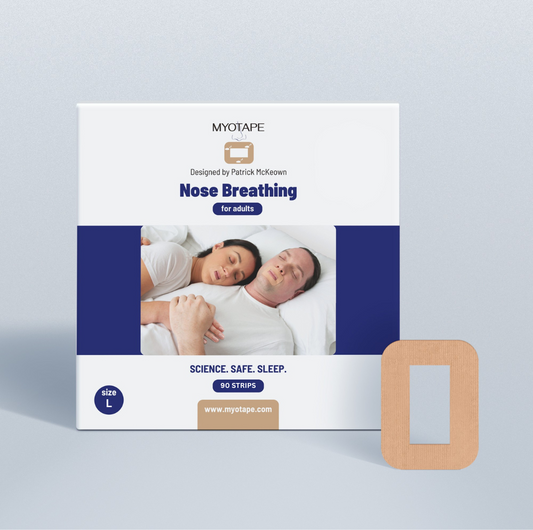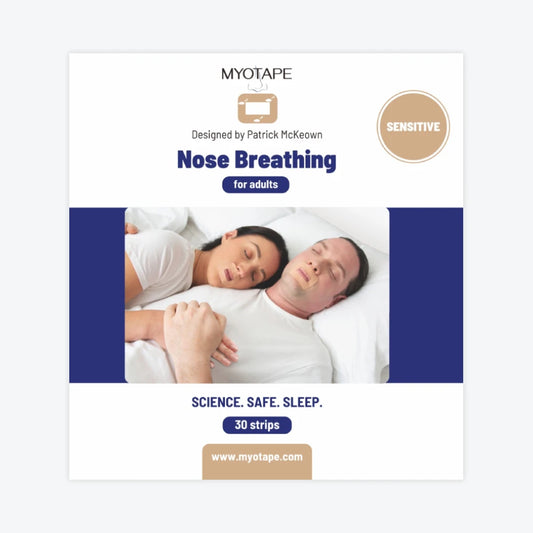Breathing properly is crucial for singers. If you're a singer, you know the importance of proper breath control. Breathing is the fuel for your voice, and how you breathe can significantly impact the quality of your performance. Breathing through your nose can reduce the effort you need to use while singing. Nasal breathing can keep your vocal cords hydrated, making it easier to sing without strain. This simple adjustment can improve the clarity and resonance of your voice, helping you achieve a more professional tone.
However, prolonged periods of mouth breathing – often seen in professional singers – can require more pressure to initiate and sustain vocal fold oscillation. Many singers may find that mouth breathing feels natural during performances, especially when they're rushing to take in air. While it might seem quicker, it can lead to drier vocal cords and even tension in the jaw and face.
Not to worry. This article explains the science of singing, why breathing through the nose is better for singers, and how nasal breathing can reduce vocal effort.
Key Takeaways
- Proper nasal breathing reduces vocal effort.
- Nasal breathing supports better vocal health.
- Tools like MyoTape can help maintain nasal breathing.
The Fundamentals of Singing and the Physiology of Vocal Production
The foundation of singing starts with proper breathing. When you take a deep breath, your diaphragm, a dome-shaped muscle beneath your lungs, contracts and moves downward. This action creates more space in your chest cavity, allowing your lungs to expand and fill with air.
The intercostal muscles between your ribs also help by expanding the chest cavity further. For singing, it's crucial to control the release of this air slowly and steadily, maintaining consistent pressure below the vocal cords, known as subglottic pressure.
Once air is in your lungs, it needs to pass through the vocal cords located in the larynx or voice box. As air flows through, the vocal cords vibrate, producing sound. The pitch of the sound is controlled by adjusting the tension and length of the vocal cords. Tightening them raises the pitch while loosening them lowers it. This vibration is the primary source of sound in singing.
The initial sound produced by the vocal cords is relatively weak and needs amplification. This is where resonance comes in. The sound waves travel through the throat (pharynx), mouth, and nasal cavities, which act as resonating chambers. These spaces enhance the sound, making it richer and fuller. Singers can modify the shape and size of these resonating chambers by adjusting their tongue, soft palate, and lips, thereby changing the tone and quality of their voice.
After the sound is amplified, it needs to be shaped into recognizable words and sounds. This is done through articulation, which involves the precise movement of the tongue, lips, and teeth. The soft palate also plays a role by controlling the flow of air through the nose and mouth, affecting the sound's quality. Clear diction and precise pronunciation are essential for effective singing communication.
To achieve a resonant and powerful voice, singers need to combine proper breath support, phonation, nasal resonance, and articulation. This involves regular practice and learning proper techniques to avoid vocal strain. Maintaining vocal health through hydration, rest, and vocal warm-ups is also crucial. However, how singers breathe is also crucial.
The Importance of Nasal Breathing in Vocal Performance
Using nasal breathing techniques during singing can improve voice quality and reduce strain. It helps in moistening and filtering the air you inhale, which can protect your vocal cords from irritation. Here are some of the benefits of breathing through your nose for singers.
Advantages of Nasal Breathing for Singers
Nasal breathing naturally moistens and filters the air, reducing dryness and irritation. This protective feature helps maintain healthy vocal cords, which is vital for clear and resonant sound. As a result, singers often experience less strain and effort when using nasal breathing techniques.
Nasal breathing also supports better vocal fold health by minimizing inflammation, improving mobility, and enhancing the mucosal wave. Proper hydration of vocal tissues can result in smoother voice quality and extended vocal endurance during performances. Because it supports vocal cord function, nasal breathing can be a powerful tool for enhancing singing and vocal performance.
Comparative Analysis: Nasal vs. Mouth Breathing for Singers
Breathing through the nose and mouth can affect your singing differently. Nasal breathing is beneficial because it reduces dryness and irritation. This is important for maintaining a clear and strong voice. With nasal breathing, vocal fold hydration improves, making movement smoother.
Conversely, mouth breathing can lead to a drier throat and tense muscles in your face and jaw. This can make your voice sound strained and affect flexibility. Mouth breathing also lets in unfiltered air quickly, which may not adequately prepare your vocal cords. While it might be quicker, it can lead to poorer vocal quality over time. So yes, mouth breathing can negatively affect your voice.
Why Maintaining Nasal Breathing Improves Your Vocal Health
According to the National Association of Teachers of Singing, it is highly recommended that singers breathe through their noses as it helps them remain organized and calm.
Breathing through your nose can greatly benefit vocal health by keeping your airways moist. When you use nasal breathing, the air is naturally humidified before it reaches your vocal cords. This prevents dryness and irritation, which are common causes of vocal strain.
Professional singers often breathe through their mouths for extended periods, which can make it harder to start and maintain vocal sounds. A 2002 study looked at how short-term mouth and nose breathing affect vocal effort in 20 women.
The researchers found that mouth breathing dries out the airways, increasing the effort needed to speak or sing.
After just 15 minutes of mouth breathing, participants needed more pressure to produce sounds, and many felt it was harder to speak. In contrast, nose breathing added moisture to the air, making it easier to speak and reducing the effort needed. Specifically, mouth breathing increased the pressure required for comfortable and low-pitched sounds, while nose breathing decreased this pressure and made speaking feel easier. The study showed that nearly half of the changes in vocal effort were due to the type of breathing.
This highlights the importance of nasal breathing for singers to reduce vocal strain and maintain their vocal health.
Nasal breathing also filters out dust, allergens, and pollutants through the tiny hairs and mucus in the nasal passages. This helps protect your vocal cords from potential irritants that might lead to inflammation. Keeping your vocal cords healthy and irritation-free is key to achieving a smooth and consistent voice.
Additionally, nasal breathing encourages proper airflow and breath control. It can be beneficial for maintaining a steady and strong breath support, which is crucial for singing. A stable airflow allows for more precise control over your tone and volume, enhancing your vocal performance.
Compared to mouth breathing, nasal breathing naturally humidifies and filters the air we inhale. This process helps prevent irritation and inflammation of the vocal cords, leading to better voice quality and a lower risk of voice disorders.
Consequently, nasal breathing reduces the vocal effort needed during speech. For singers, it's crucial to practice nasal breathing not just while performing, but throughout daily activities, including exercise, rest, and sleep. Maintaining nasal breathing helps keep the larynx moist and healthy.
Simple Tips to Maintain Nasal Breathing as a Singer:
- Practice breathing exercises focused on inhaling through your nose and exhaling through your mouth.
- Try to maintain nasal breathing while resting and during activities, including sleep.
- Be mindful of how you breathe, even during exercise.
Consistent nasal breathing helps you sing with more ease and prevents unnecessary strain on your voice, promoting long-term vocal health.
Singers Can Improve Their Breathing with MyoTape
MyoTape is a useful accessory for singers looking to improve their breathing. It promotes nasal breathing, which can ease the effort required for singing. This method supports your vocal cords and promotes healthier singing habits. Many singers and celebs use mouth tapes like MyoTape.
When you use MyoTape, it gently keeps your lips closed, encouraging nasal breathing during various activities, including sleep. This practice can be particularly beneficial for singers, as it enhances vocal performance while reducing strain.
Here's how MyoTape can benefit you:
- Supports nasal breathing: Encourages airflow through the nose, which is key for efficient vocal performance.
- Reduces vocal effort: Helps achieve a natural breathing pattern, easing the pressure on vocal cords.
- Safe and effective: Safe and effective mouth taping product for singers.
Using MyoTape can transform how you approach singing. This tool is especially beneficial during periods of rest and practice, providing consistent support to maintain optimal breathing techniques. Try MyoTape to experience a notable improvement in your vocal ability. In our shop, we have mouth tapes for adults, kids, as well as those with sensitive skin or beards.








